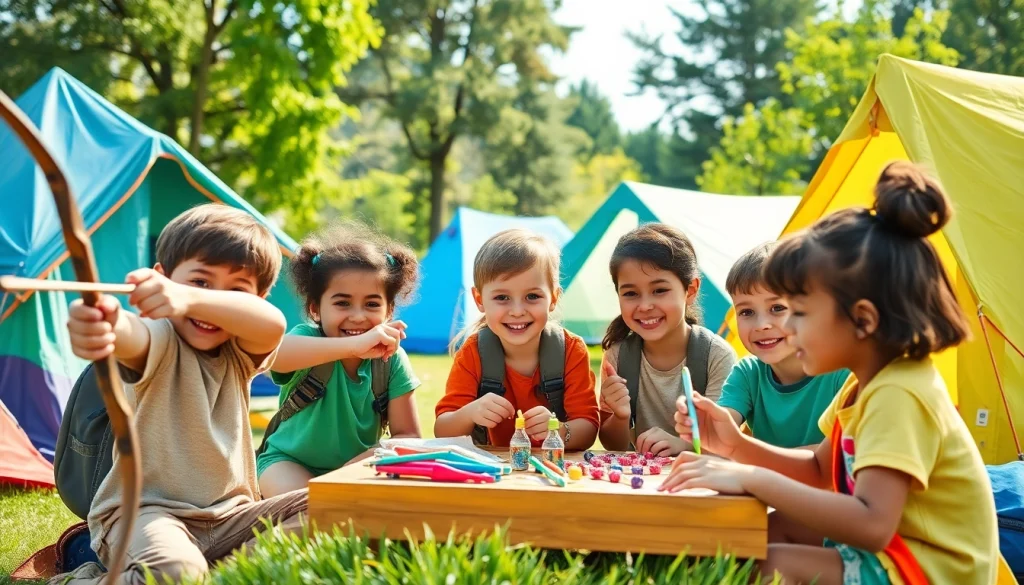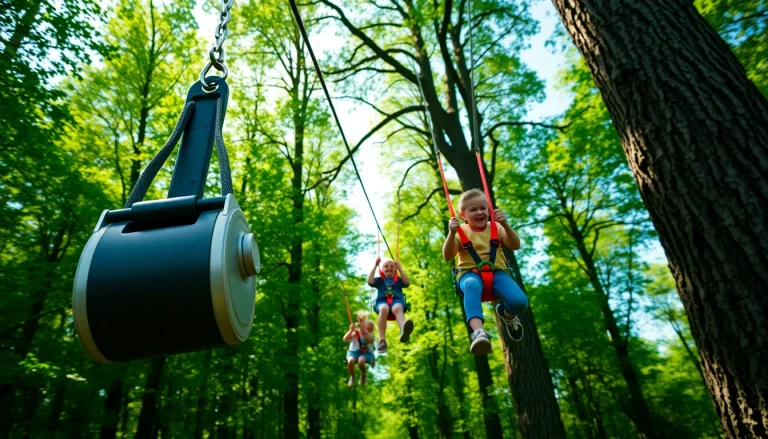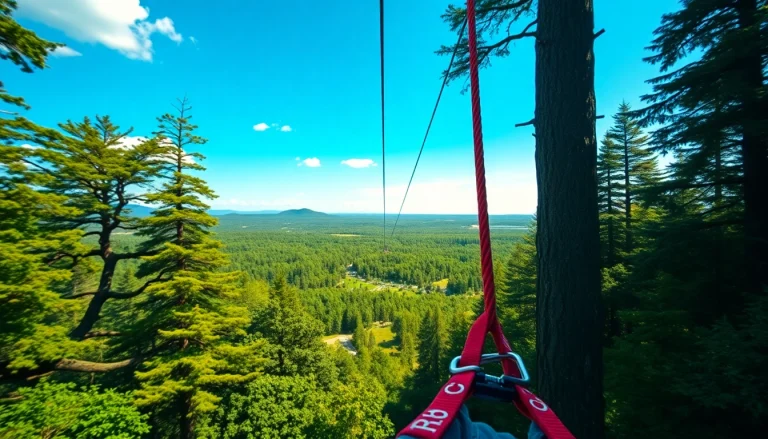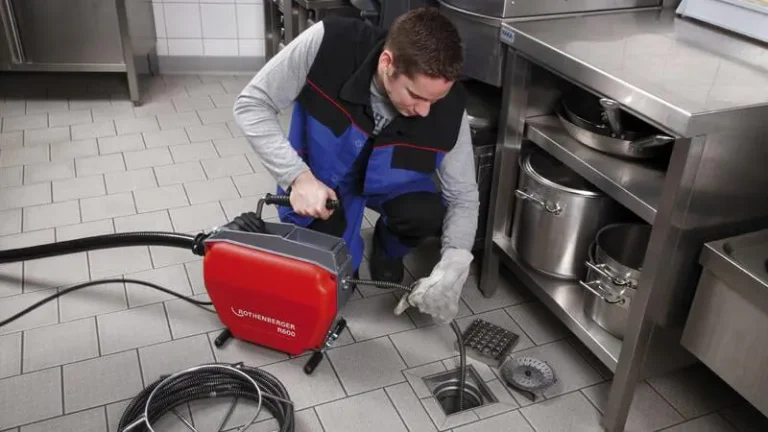
Understanding Holiday Camps
Holiday camps are specialized vacation experiences designed to provide entertainment, recreation, and learning opportunities for children and families. They typically encourage a range of activities that promote social interaction, creativity, and personal development, often within a designated site or park. Whether your family is seeking a relaxing getaway or an action-packed adventure, holiday camps can offer the perfect blend of both. In this article, we will delve into the various aspects of holiday camps, from what they are to the activities they provide, and how to select the best one for your experience.
What are Holiday Camps?
Originally conceived in the United Kingdom, holiday camps serve as a type of vacation accommodation where guests can partake in a variety of organized activities both indoors and outdoors. The key appeal lies in the all-inclusive nature of such camps, where families can settle into a community-oriented environment, making it convenient for both relaxation and socialization.
Types of Holiday Camps
There exists a diverse array of holiday camps, each catering to different interests and age groups. Below are some popular types:
- Traditional Holiday Camps: Often centered around a base, these camps feature communal activities such as sports, games, and creative workshops.
- Adventure Camps: These camps focus on outdoor experiences like hiking, canoeing, and rock climbing, appealing to thrill-seekers.
- Educational Camps: Many holiday camps incorporate educational programs that range from science to arts, helping foster skills and knowledge.
- Specialized Interests Camps: Catering to specific hobbies, these camps focus on areas such as music, drama, cooking, or sports.
- Family Camps: These camps are designed for families to participate in activities together, thus fostering bonding experiences.
Benefits of Attending Holiday Camps
Attending a holiday camp offers numerous benefits:
- Social Skills Development: Camps provide environments conducive to making new friends and building social networks.
- Skill Acquisition: Children can learn new skills and participate in diverse activities, enriching their experiences.
- Physical Activity: Camps encourage active participation, promoting health and fitness through sports and outdoor activities.
- Independence: Attending camps fosters independence, as children learn to navigate various tasks and challenges without parental guidance.
- Creating Lasting Memories: Positive experiences at camps help create cherished memories that children will carry into adulthood.
Planning Your Holiday Camp Experience
Proper planning can significantly enhance your holiday camp experience. Here are essential considerations and tips to keep in mind.
Choosing the Right Holiday Camp
With so many options available, selecting the right camp can be daunting. Here are some factors to consider:
- Age Appropriateness: Ensure the camp caters to your child’s age group with suitable activities.
- Interests: Choose a camp that aligns with your child’s interests, whether they’re into sports, arts, or adventure.
- Location: Consider the camp’s location and accessibility from your home for ease of travel.
- Reputation and Reviews: Look for feedback from previous attendees to gauge the camp’s quality and reliability.
- Cost: Assess the camp’s fees and what they include, ensuring they fit your budget.
What to Pack for Holiday Camps
Packing can be crucial to ensuring a smooth camping experience. Here’s a checklist of essential items:
- Clothing: Pack comfortable clothing, appropriate for the weather, and suitable for various activities.
- Footwear: Ensure sturdy shoes for outdoor activities and casual footwear for relaxation.
- Toiletries: Don’t forget personal care items such as toothbrush, toothpaste, and sunscreen.
- Bedding and Towels: Check if the camp provides these or if you need to bring your own.
- Special Items: If your child has specific needs or interests (e.g., favorite toys, books, or medications), be sure to include them.
Preparing Your Child for Camp Life
Getting your child mentally prepared for camp can significantly affect their experience:
- Talk Openly: Discuss what to expect at camp, including the schedule of activities and new experiences.
- Encourage Independence: Foster skills such as packing and personal hygiene to prepare them for managing themselves.
- Arrange Visits: If possible, visit the camp ahead of time to familiarize them with the environment.
- Build Excitement: Highlight fun activities planned to motivate and excite them about going to camp.
Activities Offered at Holiday Camps
One of the biggest draws of holiday camps is the vast array of activities available, designed to engage and challenge campers. Below are common activities offered at these camps:
Outdoor Adventures and Sports
Outdoor activities are a staple of holiday camps and often include:
- Team Sports: Football, basketball, and volleyball encourage teamwork and physical fitness.
- Adventure Activities: Climbing walls, obstacle courses, and zip-lining offer thrilling experiences and challenges.
- Nature Hikes: Exploring trails and learning about local ecosystems can be both fun and educational.
- Water Sports: Activities such as canoeing, kayaking, and swimming foster water safety skills while being enjoyable.
Arts, Crafts, and Creative Workshops
Camps often include creative outlets to promote expression and imagination:
- Arts and Crafts: Participants engage in painting, sculpture, and other crafts, encouraging creativity.
- Drama and Theater: Many camps offer drama workshops, culminating in performances that bolster confidence.
- Music Programs: Camps may feature musical education, ensemble performance, or songwriting sessions.
- Culinary Workshops: Cooking activities allow children to develop skills in the kitchen while learning about nutrition.
Educational Programs and Skill Development
Many holiday camps integrate educational components, including:
- STEM Activities: Programs focusing on science, technology, engineering, and mathematics can engage students deeply.
- Language Programs: Language learning sessions can foster multilingual skills in a fun environment.
- Leadership Programs: Camps may include training for teamwork, conflict resolution, and other essential leadership skills.
- Environmental Education: Learning about sustainability and ecology can inspire environmental stewardship among campers.
Safety and Well-being at Holiday Camps
The safety and well-being of attendees are crucial considerations for any holiday camp. Here are the key aspects that ensure a safe environment.
Health and Safety Guidelines
Each camp should have comprehensive health and safety policies in place, including:
- Emergency Protocols: Camps should outline procedures in case of illness or accidents, ensuring quick response.
- Health Checks: Routine health checks may be conducted to monitor the well-being of campers.
- Supervision Levels: Maintaining appropriate staff-to-camper ratios is essential for maintaining safety.
- Traffic and Location Safety: Camps should assess the safety of their environment, especially with activities near roads or water.
Staff Qualifications and Training
The competencies of camp staff can greatly impact the overall safety and educational quality:
- Background Checks: Ensuring staff undergo thorough background checks is essential for child safety.
- First Aid Training: Staff should be trained in first aid and CPR to handle emergencies effectively.
- Activity-Specific Training: Instructors should have the necessary qualifications for leading specialized activities, such as climbing or water sports.
- Continuous Training: Camps should provide ongoing training opportunities for staff to remain up-to-date on best practices.
Emergency Procedures and Communication
Transparent communication between camp staff and parents also plays a crucial role in managing emergencies:
- Clear Communication Channels: Parents should have access to contact information for camp directors to discuss concerns.
- Daily Updates: Camps may offer regular updates on camper activities and well-being to ease parental concerns.
- Incident Reporting Procedures: Camps should have established processes for documenting and reporting incidents.
- Parental Meetings: Regular parental meetings can enhance transparency and build trust among families.
Making the Most of Your Holiday Camp Experience
To truly benefit from all that a holiday camp has to offer, it’s vital to approach the experience with the right mindset and tools. Here are key tips for maximizing your experience.
Building Friendships and Community
Encouraging your child to socialize and form friendships at camp can be pivotal:
- Encourage Participation: Motivate your child to engage in a variety of activities, increasing opportunities for friendships.
- Social Skills Development: Help them work on essential social skills, like communication and conflict resolution.
- Friendship Circles: Encourage children to exchange contact information to keep friendships alive even after camp ends.
- Family Engagement: Participating in camp activities as a family can build community spirit and enhance connections.
Tips for Parents During the Camp Experience
As a parent, your role during your child’s camping experience is significant:
- Stay Positive: Maintain a positive attitude toward the camp experience to help your child feel more at ease.
- Limit Communication: While it’s tempting to check in frequently, respect camp’s policies on communication to minimize anxiety.
- Be Supportive: Validate their feelings about adjustment, providing comfort and encouragement to shine.
- Stay Engaged: Participate in parent events to stay connected with camp activities and other parents.
Testimonials and Success Stories from Holiday Camps
Listening to the experiences of others can provide insight into the value of holiday camps:
- Many parents report significant improvements in their child’s confidence and social skills post-camp.
- Campers often recount unforgettable adventures, friendships made, and new skills learned, creating lifelong memories.
- Success stories emphasize how holiday camps serve as transformative experiences, instilling a sense of independence in children as they navigate challenges.
- Both kids and parents endorse the enriching aspects of community, learning, and personal growth derived from camp experiences.






